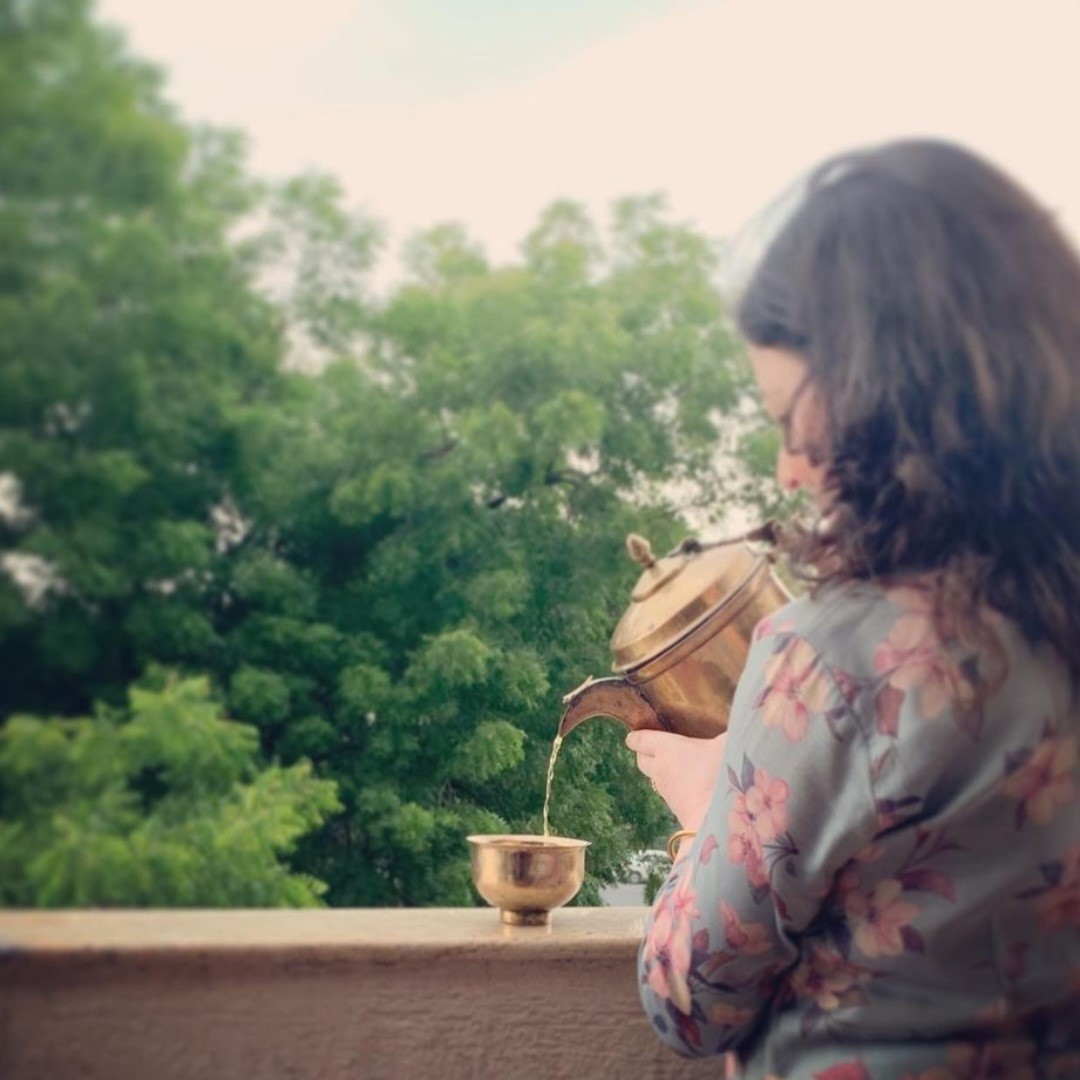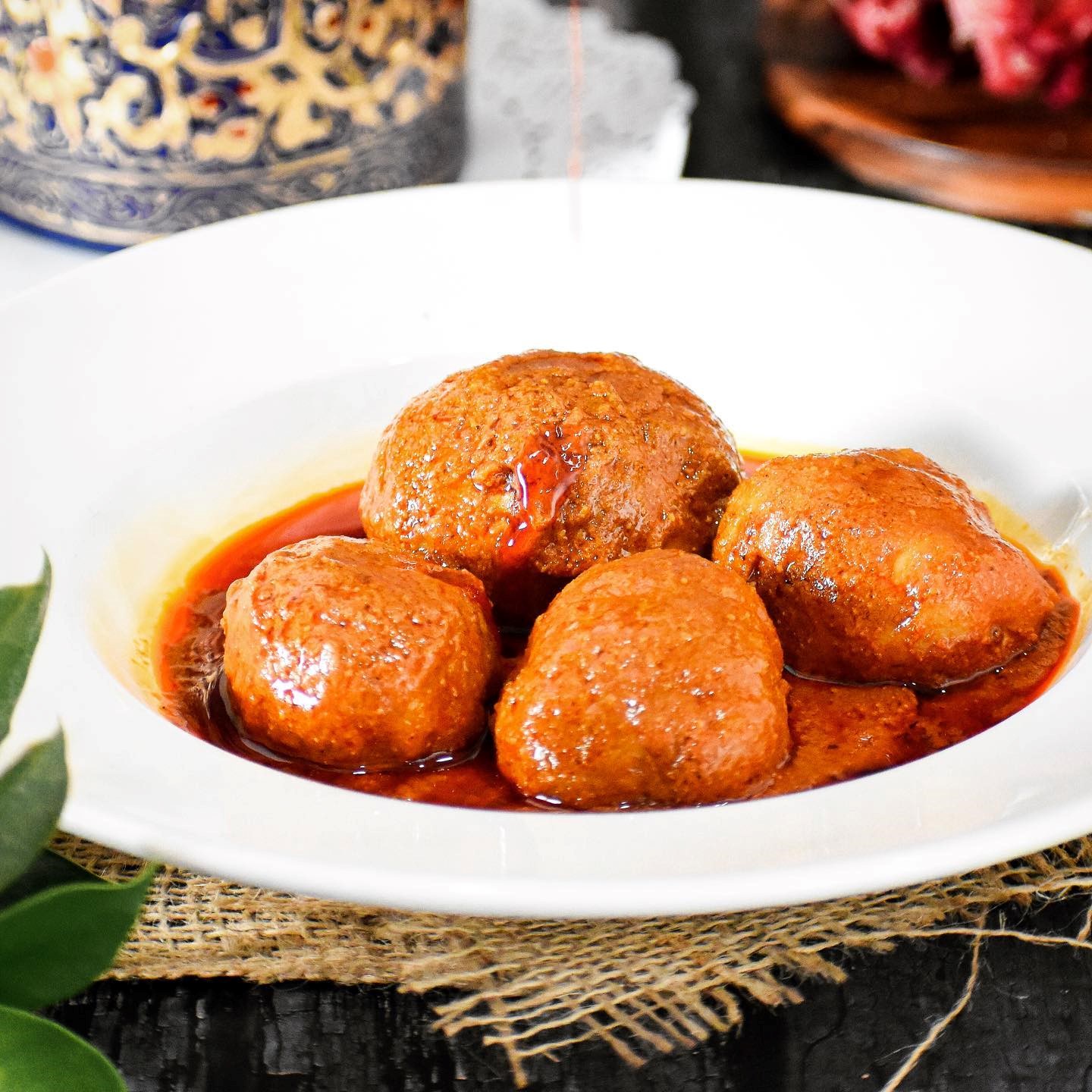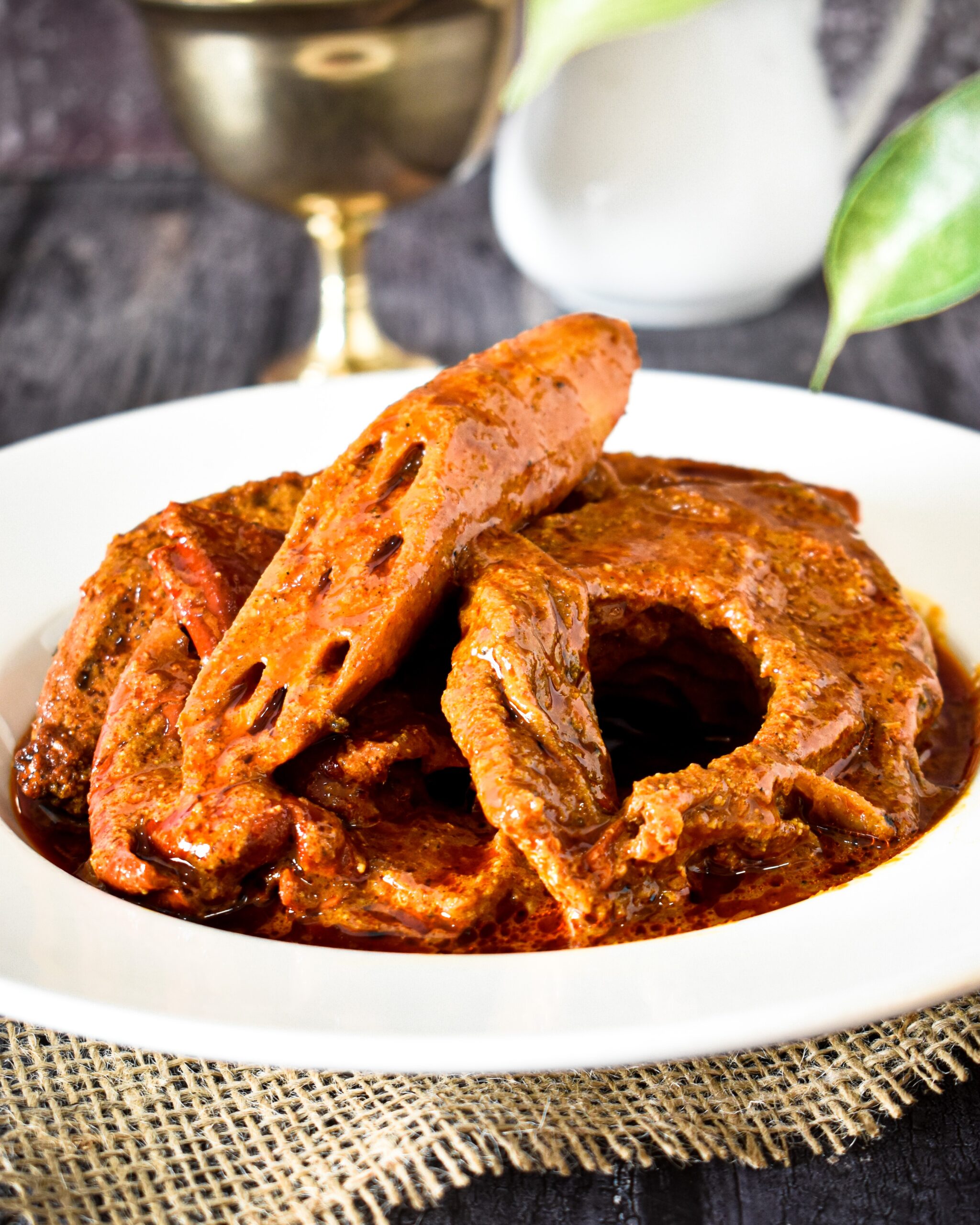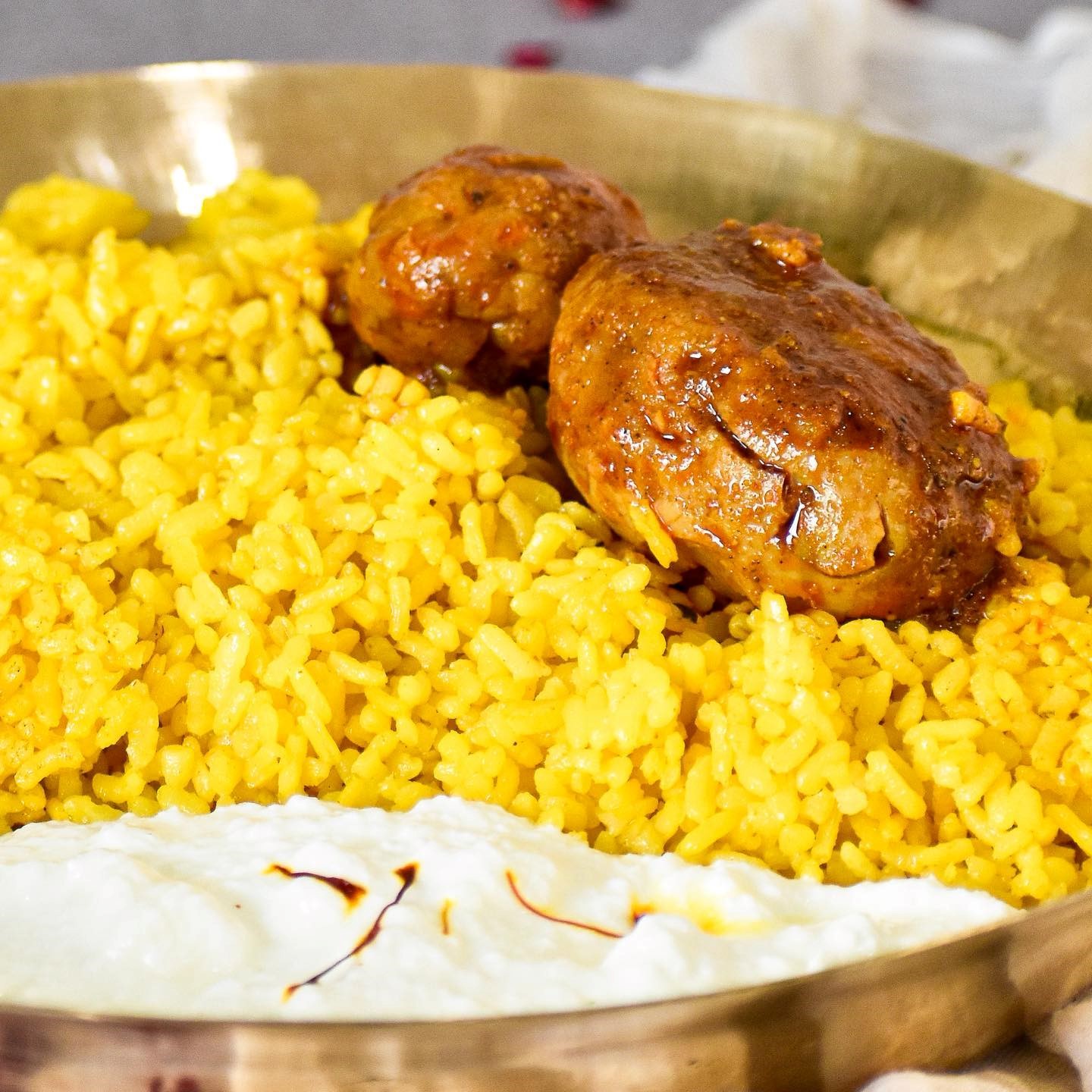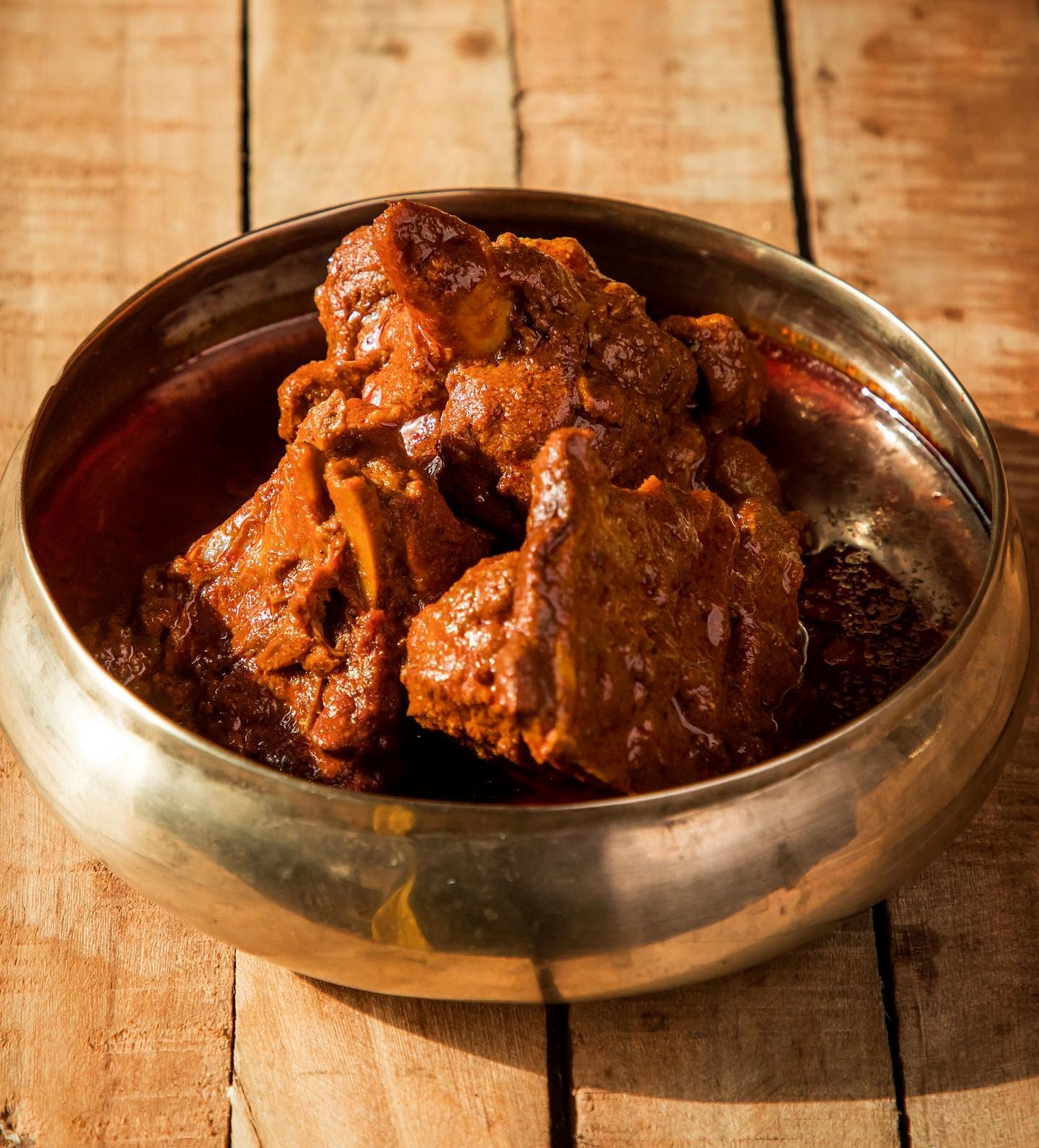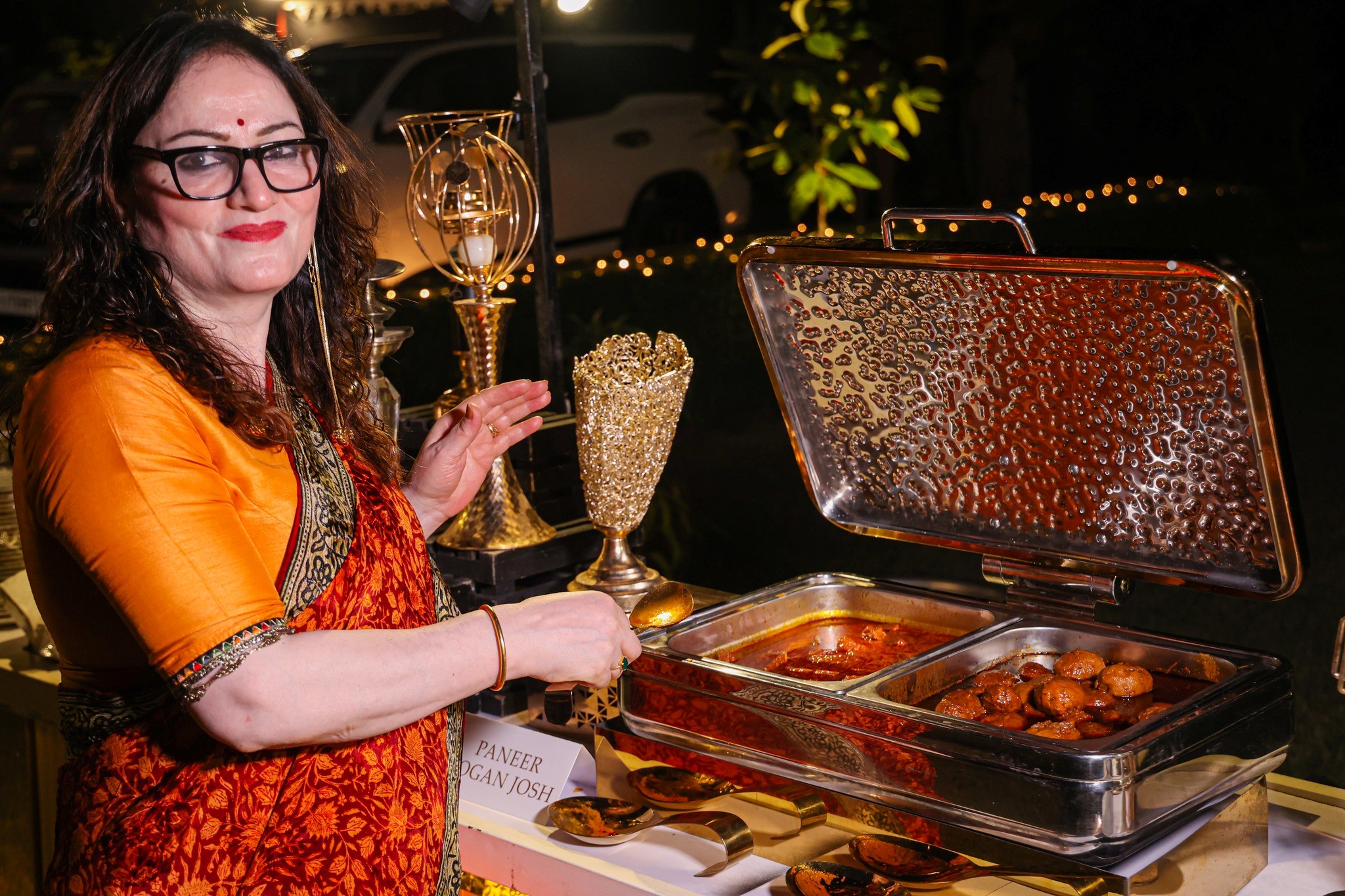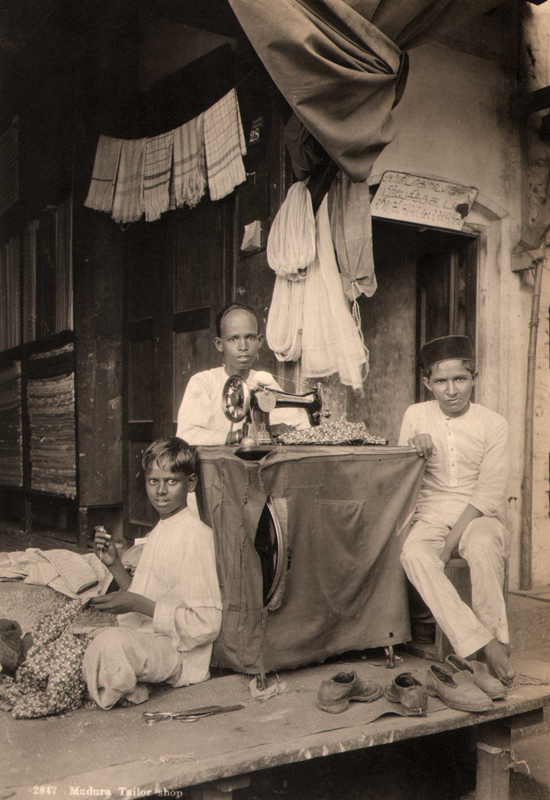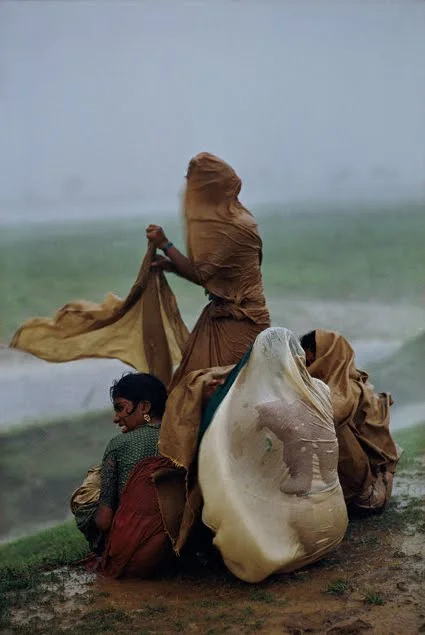Kashmiri Pandit cuisine is known for its unique blend of flavours and use of aromatic spices. The traditional dishes are often slow-cooked to perfection, allowing the flavours to meld together and create a truly delightful experience for the taste buds. From the famous Rogan Josh to the flavorful Yakhni, each dish tells a story of rich cultural heritage and culinary expertise passed down through generations.
When onions, ginger, garlic, and tomatoes are a no-no. Mutton and lotus root hold centre stage. Asafoetida, fennel, dark red chillies, dry ginger, saffron, milk, and yoghurt help create culinary magic—it probably came out of a Kashmiri Pandit’s kitchen! Meet Nalini and Surender Sadhu, who are on a mission to popularise the Kashmiri Pandit food they grew up with through pop-up festivals and their Matamaal restaurants, located across five cities.
“Matamaal means grandmother’s house. It is meant to evoke feelings of old family recipes, large festive gatherings, and food cooked with love and hand-pounded spices,” begins Nalini.
Born and raised in Rajbagh, Srinagar, in a joint family, she used to enthusiastically volunteer for cooking tasks as a kid. She recalls, “That’s where I learned a lot, from my grandmother in the family kitchen and then from my mother-in-law.” Later, when she married Surender and moved to the Middle East, she enjoyed cooking for their friends and began to participate in neighbourhood bazaars, where her food was a big hit. “Eventually word got out, and I was invited to host a Kashmiri Food Festival at the iconic Raffles Hotel in Singapore in the early 2000s. It was a game-changer and gave me a lot of confidence. Once back in India, I began to showcase Kashmiri Pandit cuisine from my home kitchen through food delivery apps. Our customer base expanded so rapidly that Surender encouraged me to open a tiny 12-seat restaurant in Gurgaon. It was very successful, and soon we began to expand, store by store, till we occupied the whole building. Of course we have since extended our menu to include Wazwaan dishes as well, but Kashmiri Pandit food that was only available in homes, not restaurants, is special to our hearts,” she explains.
Today, the Sadhus have a presence in Pune, Gurgaon, Noida, and Kashmir. When asked what sets Kashmiri Pandit cuisine apart? She explained, “It’s the way we cook and the spices we use. Some of my favourite dishes are Masc—cylindrical meatballs in a light gravy—and Kalia—meat cooked to tender perfection in milk and whole spices. This is my personal comfort food. Chok Charwan—pickled mutton liver. Vegetables like Haak (leafy greens) and Nadru (lotus stem), Muji (radish), and Wangun (eggplant) that are cooked with whole spices like tamarind paste or turmeric. Hing is also very important in our cuisine, and sourcing the finest quality is almost a family obsession. We use whole spices like cloves, cinnamon, cardamom, and pepper very generously, and I must mention the all-important lotus plant. Nadru, as we call the stem, is offered to the gods and eaten both as a delicacy and a staple, cooked as a vegetable or along with meat or fish in every Pandit kitchen. I learned to make alu-bukhara mastch (meatballs stuffed with plums) from my grandmother, and it is one of Matamaal’s signature dishes. In summer, my grandmother would pick a handful of aelchi (sour cherries) from the overhanging branches on our top floor and muddle the mint chutney.
Chutneys are a significant way of elevating a meal. And her meal planning always begins with choosing the right chutneys to complement the mains. Nalini suggests, “It could be a simple grated radish with yoghurt and chillies to soothe your palate, or maybe hand-pounded coriander, mint, or walnuts with seasonings and dressings. My earliest food memories are of two big deechas (vessels) of rice and haakh (collard greens) simmering in the kitchen, and my father returning from work in the evening with a handful of fresh mutton tied in a handkerchief that I would quickly turn into Kanti, a spicy appetisers made with chilli and black jeera. It is one of our most popular items on our menu at Matamaal!”
The combination of spices and fresh ingredients in their dishes at Matamaal is what sets them apart. They strive to bring the flavours of traditional Kashmiri cuisine to our customers, offering a unique and unforgettable dining experience.
Words by Jackie Pinto.
Images Courtesy of Matamaal
